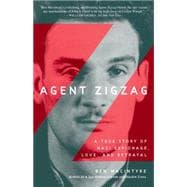
Note: Supplemental materials are not guaranteed with Rental or Used book purchases.
Purchase Benefits
What is included with this book?
| Prologue | p. 1 |
| The Hotel de la Plage | p. 3 |
| Jersey Gaol | p. 11 |
| Island at War | p. 21 |
| Romainville | p. 29 |
| Villa de la Bretonniere | p. 39 |
| Dr. Graumann | p. 48 |
| Codebreakers | p. 61 |
| The Mosquito | p. 72 |
| Under Unseen Eyes | p. 81 |
| The Drop | p. 89 |
| Martha's Exciting Night | p. 99 |
| Camp 020 | p. 106 |
| 35 Crespigny Road | p. 117 |
| What a Way Out | p. 130 |
| Freda and Diane | p. 139 |
| Abracadabra | p. 152 |
| The Greater the Adventure | p. 164 |
| Stowaway Spy | p. 178 |
| Joli Albert | p. 185 |
| Damp Squib | p. 198 |
| The Ice Front | p. 209 |
| The Girl at the Ritz | p. 220 |
| Sabotage Consultant | p. 233 |
| Lunch at the Lutetia | p. 242 |
| The Prodigal Crook | p. 253 |
| Doodlebugs | p. 262 |
| Going to the Dogs | p. 271 |
| Case Dismissed | p. 280 |
| Aftermath | p. 290 |
| Epilogue | p. 301 |
| Appendix | p. 307 |
| Acknowledgments | p. 309 |
| Notes | p. 311 |
| Selected Bibliography | p. 349 |
| Index | p. 353 |
| Table of Contents provided by Ingram. All Rights Reserved. |
The New copy of this book will include any supplemental materials advertised. Please check the title of the book to determine if it should include any access cards, study guides, lab manuals, CDs, etc.
The Used, Rental and eBook copies of this book are not guaranteed to include any supplemental materials. Typically, only the book itself is included. This is true even if the title states it includes any access cards, study guides, lab manuals, CDs, etc.
Excerpted from Agent Zigzag: A True Story of Nazi Espionage, Love, and Betrayal by Ben Macintyre
All rights reserved by the original copyright owners. Excerpts are provided for display purposes only and may not be reproduced, reprinted or distributed without the written permission of the publisher.